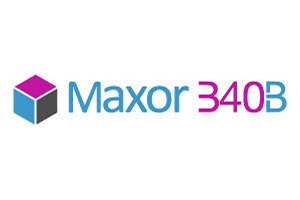SPONSORED CONTENT
Community health center (CHC) pharmacies, which have long operated with tight budgets, have recently been further weighed down by a trifecta of woes:
- Significant staffing shortages and lower margins related to COVID-19 – according to a 2021 Capital Link report, 66% of CHCs risked draining their cash reserves to dangerously low levels and patient visits declined 26% between April and December 2020.
- The growing number of drug manufacturers that have imposed restrictions on the sale of 340B-discounted drugs to contract pharmacies
- Growing regulatory complexity and the need to manage various vendors
These evolving challenges make delivering on CHCs’ mission to serve vulnerable patients in their community harder than ever.
To better understand the current state of CHC pharmacies, their struggles, plans, and partner preferences, Maxor 340B commissioned healthcare consultancy Sage Growth Partners to conduct an independent survey of CHC pharmacy leaders. The 75 leaders who responded to the survey provided fresh insights that can be useful to other CHCs seeking to optimize their 340B programs.
With the current threat to contract pharmacies’ 340B savings, operating an on-site pharmacy appears to be a better option for many CHCs. The survey showed that over half of respondents operate one or more pharmacies on their premises now and another one-third plan to open one within three years. That means that the majority of CHCs will soon have one on-site.
But running a 340B pharmacy is a complex undertaking that requires optimal use of scarce space, knowledge of complex regulations, robust tracking and reporting data, the ability to attract and retain pharmacists and pharmacy technicians, and a well-stocked pharmacy amid drug shortages and restrictions. Beyond these operational challenges, many CHCs aren’t fully capturing 340B savings from their contracted pharmacies, nor are they optimizing potential savings from patients who have been referred to specialists. It’s a lot to task a CHC 340B program manager who is taking on several roles and facing a lack of resources.
Working with a Partner: Top 5 Considerations
The survey uncovered some of CHC leaders’ top vendor challenges and what they most value in a partner. The lack of tailored solutions topped their list of very/extremely challenging vendor issues (39%), followed by complex fee structures (23%), and having to manage multiple vendors (16%).
If you’re considering a partner to help you optimize your existing on-site pharmacy or launch a new one, we recommend keeping five considerations in mind:
- Comprehensive services
- Deep pharmacy management and staffing expertise
- Compliance expertise/track record
- Responsive account service and transparency
- Tailored solutions
1. Comprehensive services
More than three-quarters of survey respondents said they value working with a single vendor that can support multiple needs, including the ability to fully manage an on-site pharmacy. As one respondent noted, “Centralized management of pharmacy functions makes oversight of 340B less cumbersome.” You also want to ensure your partner has the scope of services that will allow them to support you as your needs evolve.
2. Deep pharmacy management and staffing expertise
Given the impact of the ‘Great Resignation’ on employment, it’s not surprising that staffing topped the list of operating challenges, cited by 38% of respondents. That makes it more critical than ever for pharmacy management partners to offer deep expertise in recruiting, training, and retaining skilled staff. That’s why Maxor, which is led by a pharmacist and operates 60 pharmacies nationally, has a dedicated team of pharmacy recruiters to find and keep top talent. We ensure that our pharmacy staff has a supportive culture that includes a career advancement program to promote satisfaction and retention.
3. Compliance expertise
As the 340B program has grown, HRSA has increased its oversight and the risk of being audited has risen. Ensure that the pharmacy management partner you select has a solid track record of meeting and exceeding all regulatory requirements and can support HRSA and manufacturer audits. Maxor provides clients with gap assessments to help ensure compliance.
4. Responsive account management
Perhaps nothing sours a relationship with a pharmacy partner more than unresponsive service. Talk to references to determine if the vendor offers a single point of contact, consistently responsive service, and end-of-month reports that are delivered on time.
5. Tailored solutions
Look for a partner that can offer flexible solutions tailored to your unique needs and preferences, which may include everything from pharmacy management to contract pharmacy, split billing, and/or referral capture capabilities.
Also seek a vendor that offers full transparency and consistency in its pricing model, so you don’t risk being hit with unexpected fees. Upfront financing support can also be useful in helping a cash strapped CHC get its on-site pharmacy off the ground. A partner with extensive operational experience managing multiple pharmacies can also potentially deliver more advanced technology and economies of scale that can improve efficiencies, lower costs, save time, and enhance savings.
If you’re considering working with a partner to develop an on-site pharmacy, take advantage of a personalized, complimentary Pharmacy Value Study aimed to help you optimize your 340B program and avoid common mistakes. Visit maxor.com for more information on Maxor’s comprehensive solutions.

Mike Ellis is Chief Executive Officer at Maxor National Pharmacy Services. For questions, please reach out to maxor340B@maxor.com.




